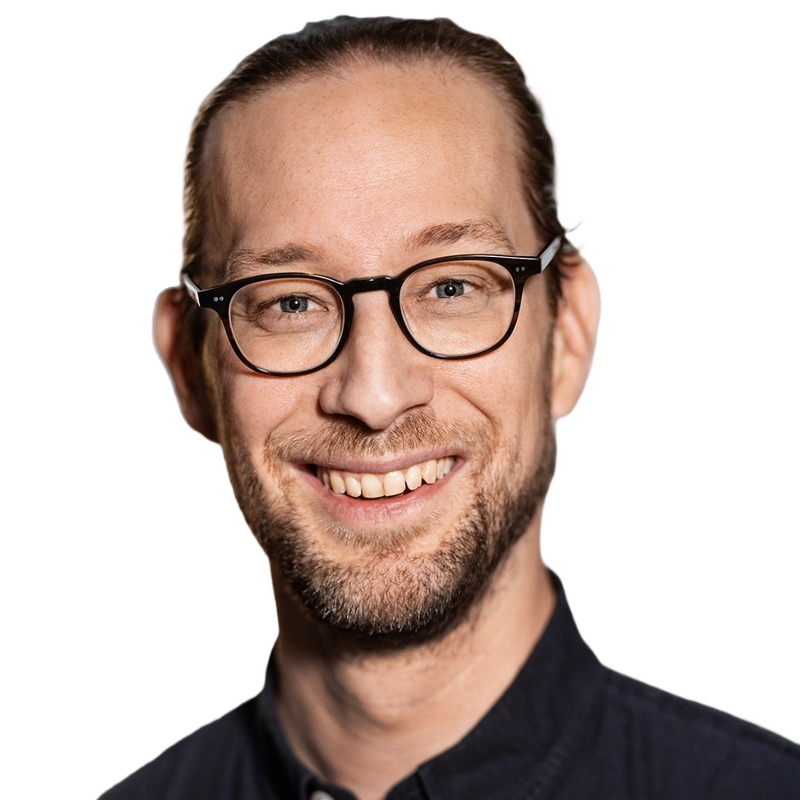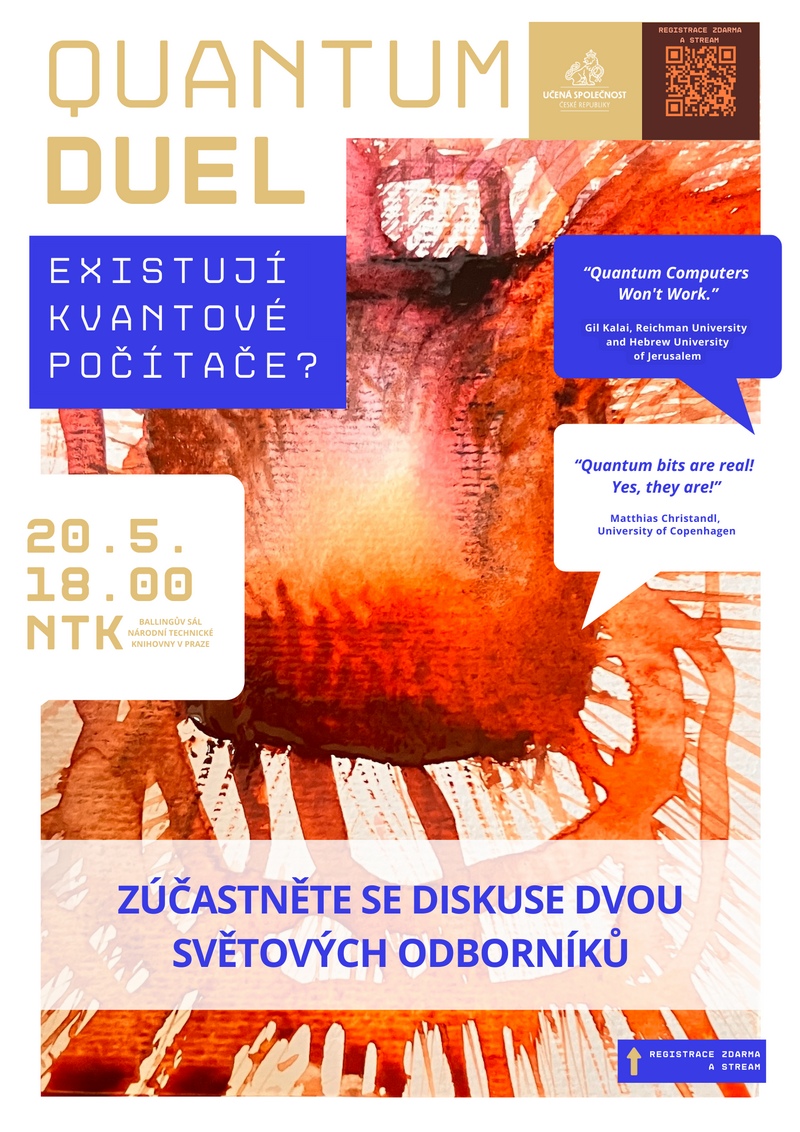15.04.2025
Quantum duel: Existují kvantové počítače? (20. května 2025)
Zúčastněte se v úterý 20. května 2025 v NTK diskuse dvou světových odborníků o tom, zda někdy v budoucnosti budeme mít relevantní kvantové počítače.
Matthias Christandl z University of Copenhagen hájí názor, že tomu žádná teoretická omezení nestojí v cestě.
Gil Kalai z Hebrew University of Jerusalem a Reichman University nezpochybňuje fakt sestrojení qubitů ((kvantových bitů – jednotek informace, které „jsou zároveň 1 i 0“), ale argumentuje, že kvůli jejich vlastnostem relevantní kvantový počítač nikdy mít nebudeme.
- úterý 20. 5., 18.00
- Ballingův sál Národní technické knihovny, Technická 6, Praha 6
- vstup zdarma
- POZOR, nutná registrace
Quantum computing is a computational model based on the principles of quantum physics. For certain computational tasks, ideal quantum computers are expected to outperform classical digital computers by many orders of magnitude, potentially rendering most current cryptosystems obsolete. While quantum computing presents an exciting vision for future technology, there is ongoing debate about its feasibility. Indeed, when or even whether scalable quantum computation is possible remains one of the most important scientific questions of our time.
Matthias Christandl
University of Copenhagen
Quantum bits are real! Yes, they are!

Quantum mechanics allows us to have a unit of information to hold "0" and "1" at the same time, called quantum bits or qubits. As our understanding of the universe, information in the brain and computer technology are based on the traditional concept of bits that can only be either "0" or "1", qubits have the potential to profoundly change our understanding of everything around us. Can cats be alive and dead at the same time? (Schrödinger) Are we living in a multiverse, where different universes branches interfere like light does? (Deutsch, 1980s) Can we build a quantum computer? (Feynman, Deutsch 1980s)
Whereas the first two questions are hard to address, the last one is a tangible task, the research and industry have embarked on with big enthusiasm and money. The first small and noisy quantum bit have been built, yes, quantum bits are real! For a full-scale quantum computer, we need more and better qubits. This is difficult to achieve. Very difficult, but I will argue that there are no theoretical obstacles that we know of — and that the research is well on-track!
Gil Kalai
Reichman University and Hebrew University of Jerusalem
Why Quantum Computers Won't Work

I argue that building scalable quantum computers — and even achieving significant early milestones in quantum computation — is fundamentally impossible. My theory posits that intermediate-scale quantum computers are intrinsically noisy systems. Their robust components exhibit only a low-level (classical) computational capability, and they inherently display noise-sensitive behavior. These characteristics suggest that, for intermediate-scale quantum systems, neither a demonstration of "quantum computational supremacy" nor the implementation of high-quality quantum error-correcting codes is achievable. Consequently, this implies that large-scale quantum computers based on quantum error correction are fundamentally unattainable.
Quantum bits (qubits) are real, and there are multiple physical ways to implement them! However, qubits are inherently noisy, and my argument presents a theoretical obstacle to achieving stable qubits and other near-term goals in quantum computation.
Masterclass Učené společnosti
přednášky pro středoškoláky a širokou veřejnost prezentované jak naživo, tak online
Petr Slavíček: Co dal vědě exkrement?

